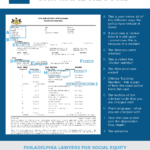Clearing your criminal record can be a complex and often lengthy process, varying significantly depending on the jurisdiction and the nature of the offense. While the term "clearing" is often used, it can encompass several different legal mechanisms, including expungement, sealing, setting aside a conviction, and obtaining a pardon. This guide provides a general overview of these processes.
1. Understanding the Terminology:
- Expungement: This process effectively erases the record as if the offense never occurred. Background checks will typically not reveal an expunged record.
- Sealing: This hides the record from public view, but it may still be accessible to law enforcement and certain government agencies.
- Setting Aside a Conviction: This process, sometimes called vacating a conviction, overturns the original guilty verdict.
- Pardon: This is a governmental act of forgiveness that restores certain rights and privileges lost due to a conviction. It doesn’t erase the record, but it signifies official forgiveness.
2. Eligibility Requirements:
Eligibility for any of these options depends on various factors, including:
- The type of offense: Certain serious offenses, such as violent crimes or sex offenses, may not be eligible for expungement or sealing.
- Time elapsed since the offense: There are often waiting periods after completing a sentence before applying for record clearance.
- Completion of sentence: Fines, restitution, and probation must typically be completed before applying.
- Subsequent criminal history: A clean record after the offense in question strengthens the chances of successful expungement or sealing.
3. The Process:
The specific steps involved in clearing a criminal record vary by jurisdiction. Generally, the process involves:
- Researching your state’s laws: Each state has its own procedures and eligibility criteria. Consult your state’s court website or legal aid resources.
- Obtaining necessary documents: This may include court records, police reports, and sentencing information.
- Completing an application: The application process may require detailed information about the offense and your personal history.
- Filing the application with the court: There may be filing fees associated with the application.
- Attending a hearing (if required): The court may schedule a hearing to review your application and hear arguments from the prosecutor.
4. Seeking Legal Assistance:
Navigating the process of clearing a criminal record can be challenging. Consulting with an experienced criminal defense attorney is highly recommended. An attorney can:
- Determine your eligibility for record clearance.
- Guide you through the application process.
- Represent you in court.
- Increase your chances of a successful outcome.
5. Benefits of Clearing Your Record:
Clearing your criminal record can have numerous benefits, including:
-
Improved employment opportunities: Many employers conduct background checks, and a criminal record can hinder your chances of getting hired.
-
Enhanced housing options: Landlords often screen tenants for criminal history.
-
Increased educational opportunities: Some educational institutions consider criminal records during the admissions process.
-
Restoration of certain rights: Depending on the state, a criminal record can restrict certain rights, such as the right to vote or own a firearm. Clearing your record may restore these rights.
Disclaimer: This information is for general educational purposes only and does not constitute legal advice. It is essential to consult with a qualified attorney in your jurisdiction for advice specific to your situation.


